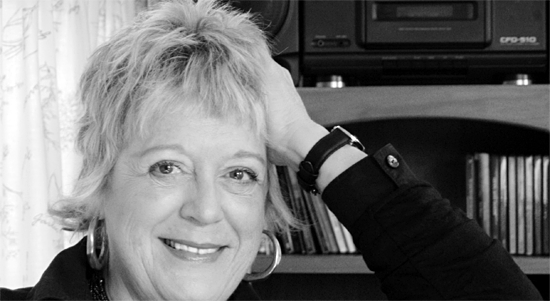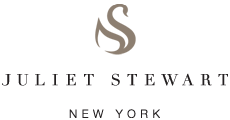

Health Advocate
Finding Reliable Information
How to know what sources to trust
How lucky we are with the Internet at our fingertips! What a different world from when my family first experienced serious illness in the 70s. In those days you had to go to the library and ask the librarian for help. As for information about clinical trials or anything current—that was not accessible to a regular person like you or me.
Now you can get quick and easy access to unlimited health information. You can learn about conditions, therapies, advocacy organizations, and medical institutions. You can research your doctors and your hospital or clinic. You can find out what the side effects of specific drugs are. And you can even join a support group without leaving home! All this is fantastic. But remember, you still need to consult your doctor. He or she—not the Internet—is charged with caring for you.
I like to get as much information online as possible before I go to the doctor. For me, doing my own research is a way of being fully prepared for a discussion and making informed decisions that could impact my life.
Here are some guidelines I find useful:
- Consider the source of the information. Check out the “about us” tab on the home page. Who created the site (health organization/hospital/government body/university/pharmaceutical company)? Who is the author (individual, editorial board)? If it’s an individual, find out more about the writer. If it’s an editorial board find out more about these people and their qualifications What is the purpose of the information? Is the site produced by a non-profit or government body that helps inform about a specific condition, or by a commercial site that has a product or service to sell?
- Are you looking at facts or opinions? Some sites actually cite their references, so you can easily check where the information comes from. But opinions are points of view—just Google “bloggers” and you’ll meet millions of bloggers and find literally hundreds of blog directories
- How current is the information? Always look for a date. Many Web pages will post the date on which the page was last reviewed or updated. The older the date, the more likely the information is to be out-of-date. Try to limit yourself to pages that have been written and reviewed within the last year or two. Information changes fast these days, and the most reputable organizations will update regularly
- Was the information reviewed by anyone? For example, by an editorial board or a doctor. If there is an editorial board you are more likely to have information that has had input from a more diverse audience, with many points of view
Tips:
- .org at the end of a Web address usually means it’s published by a nonprofit organization (e.g. www.cancer.org is the American Cancer Society site)
- .gov at the end of the Web address usually means it’s published by a U.S. government department (e.g. www.cancer.gov is the National Cancer Institute site)
- .edu at the end of the Web address usually means it’s published by a college or university (e.g. www.jhu.edu is the Johns Hopkins University site)
- .com at the end of the Web address usually indicates a commercial site. But many .com addresses don’t sell anything directly (e.g. www.mayoclinic.com provides a lot of essential health information)
- To find credible health information, Health on the Net, or HON as it’s known, is an interesting organization. Based in Switzerland with 60 participating countries, go to www.HON.ch. to learn more
- Remember that the information you get online may be accurate and useful, but it may not be balanced. That’s why you should be skeptical! Always try and verify medical information by finding more than one source, or by having a discussion with your doctor and/or healthcare team
Knowledge is power
I’m sure you’re as tired of this phrase as I am, but I’ve been unable to come up with a better one. One of the times that you are truly powerless is when you’re waiting to find out about a diagnosis. If you’ve experienced this you know how excruciating it is. Your imagination is running wild, and you are simply crazed with anxiety. Afterwards, even if the results you get are not what you hoped for, at least you have some concrete information. It is at this point that you can get to work and do some research and make a plan. When you have a plan you are empowering yourself.
Keeping things in perspective
Here’s a story I heard a few years ago that reminds me of the power of knowledge and how important it is to keep things in perspective—something that’s very hard in the face of difficult medical news.
In the county where I live there was an elderly man who had to undergo a biopsy for suspected melanoma. He was so worried that it would be an incurable cancer that he tracked down the Pathologist who had his slides. (This is unusual because you don’t normally meet the person at the lab.)
Happily the doctor was able to assure him that it was not melanoma. In fact it was nothing serious at all. As the doctor shook the man’s grateful hand he caught a glimpse of a tattooed number on his other arm. The patient smiled when he saw the doctor’s startled reaction, and acknowledged that “yes”, he was a Holocaust survivor, and “yes” the tattoo was real.
This patient had survived the unspeakable, and yet he was terrified of a suspected cancer diagnosis. I am always moved by this story, because it illustrates how fearful you can be, even if you are a brave person who has gone through a lot. I try to remember this when I go for tests and am waiting for the results. Although it’s very hard, I try to suspend judgment and not to speculate. Sometimes what you don’t know is scarier that what you know for sure.
One last thing—if you don’t feel comfortable doing research on your own, ask a relative or friend to help you. You’ll find if you ask for specific help like this, people will be happy to oblige. And for most young people, finding information on the Internet is no trouble at all.
Until next time!
Yours in good health!
Louise Becker MA
Health Advocate
Cancer Health Advocate Main Page
© Louise Becker 2012

